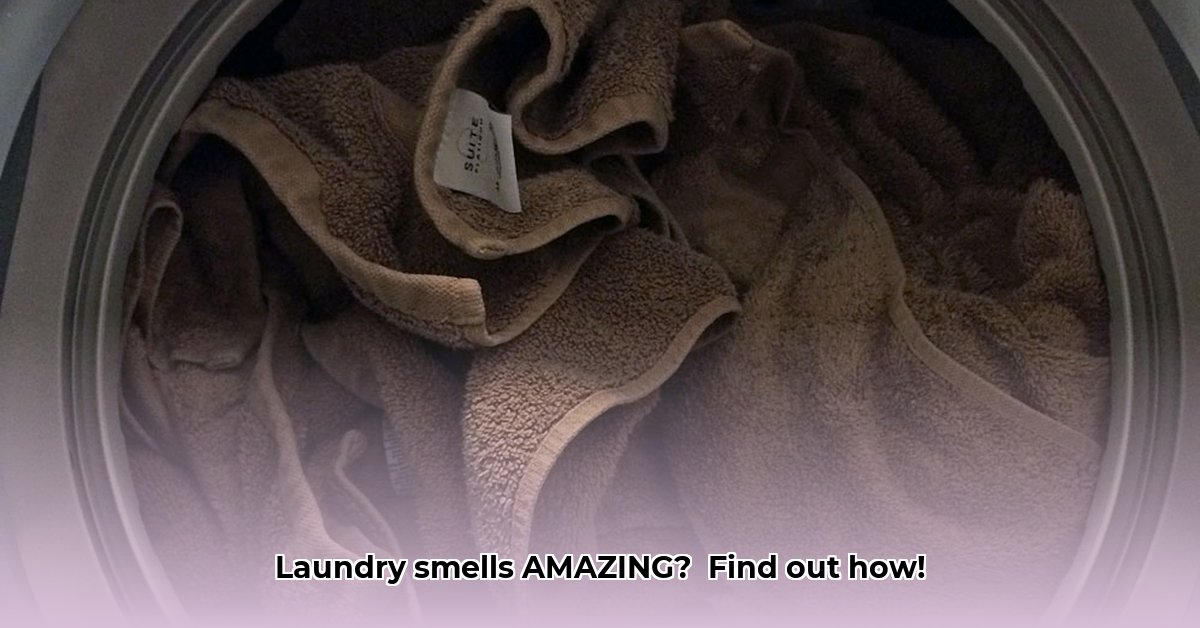Want to ditch those harsh chemical laundry scents and go natural? This guide will show you how to use essential oils to make your clothes smell amazing. We’ll cover everything from how well they clean to how to use them safely, plus share some tips and tricks to get that fresh, clean scent you love. We’ll also tackle some common concerns and help you choose the best oils for you. For more information on essential oils, check out this helpful resource: learn more. Get ready to discover a whole new way to do laundry!
Essential Oils for Laundry: Your Ultimate Guide to Fresh, Naturally Scented Clothes
So you’re thinking about ditching harsh chemicals and embracing the natural world of essential oils for your laundry? That’s fantastic! It’s a growing trend, and for good reason. Essential oils offer a natural alternative to synthetic fragrances, promising a gentler, more aromatic experience. But let’s be clear: there’s a lot to learn before you toss those lavender drops in with your whites. This guide will walk you through everything you need to know to use essential oils in your laundry safely and effectively, creating clothes that not only smell wonderful but also align with your values.
Unleash the Power of Scent: Choosing the Right Essential Oils
The beauty of using essential oils in your laundry is the sheer variety of scents available, catering to every mood and preference. Lavender, with its famously calming aroma, is a classic choice, perfect for bedding and items you want to associate with relaxation. If you need an energy boost, lemon essential oil’s bright, uplifting fragrance might be just the ticket, ideal for workout clothes or linens. Tea tree oil, known for its fresh, slightly medicinal smell, is favored by some for its potential antimicrobial effects. And who can resist the invigorating zing of peppermint, perfect for freshening towels or creating an awakening scent?
Beyond these popular choices, explore other options like:
- Eucalyptus: A clean, crisp scent great for removing odors and freshening up stale items.
- Sweet Orange: A cheerful and uplifting aroma for everyday wear.
- Rosemary: A herbaceous scent with potential antibacterial properties.
- Chamomile: A gentle, soothing scent for delicate fabrics and baby clothes.
The truth is, the best essential oil is simply the one you love the most. Don’t be afraid to experiment and find your perfect blend! Consider creating signature scent combinations for different types of laundry loads. What scents uplift you and make laundry day more enjoyable?
Do Essential Oils Really Clean Clothes? The Science (and Speculation)
This is the million-dollar question, isn’t it? We all know essential oils smell divine, and many are believed to possess properties that fight bacteria and other microorganisms. However, the scientific evidence specifically linking essential oils to superior cleaning in a laundry setting is, frankly, limited. While lab studies show some oils have antibacterial effects, that doesn’t automatically translate to a squeaky-clean washing machine.
It’s crucial to understand that essential oils are primarily scent enhancers, not replacements for detergents. They contribute to a fresher smell and may offer some antimicrobial benefits, but they don’t remove dirt and grime like a good detergent.
Imagine it like this: a fantastic smelling, lemon-infused dish soap might smell incredible, but it doesn’t guarantee perfectly spotless dishes every time. Similarly, essential oils can contribute to a more pleasant laundry experience, but should be used in conjunction with a quality detergent for optimal cleaning.
More research is needed, and scientists are actively exploring this area. Did you know some essential oils are being researched for their potential in fighting specific types of bacteria, including those responsible for unpleasant odors in fabrics?
Safety First: Handling Essential Oils Responsibly
Safety is key when working with essential oils. While they are natural, they are also potent and can cause adverse reactions if used improperly.
Some oils, like cinnamon, clove, and citrus oils, can stain your clothes—especially lighter-colored fabrics. Always dilute them properly before using them in your laundry routine. Additionally, high concentrations of some oils can be flammable, so exercise caution, particularly when using a dryer.
Here are crucial safety precautions to keep in mind:
- Dilution is essential: Never add undiluted essential oils directly to your washing machine or dryer. Always mix them with a carrier substance like water, vinegar, or unscented detergent.
- Storage matters: Store essential oils in a cool, dark place away from direct sunlight and heat. Keep them out of reach of children and pets.
- Flammability: Be mindful of the potential fire hazard when using essential oils in the dryer. Always use wool dryer balls or cloths, and ensure the oils are fully absorbed. Avoid using high heat settings.
- Allergic reactions: Perform a patch test before using an essential oil for the first time. Apply a diluted amount to a small area of skin and wait 24 hours to check for any irritation.
- Specific oils to avoid: Highly concentrated oils like cinnamon, clove, oregano, cedar, and pine are best left out of your laundry, since they have the potential to stain or irritate the skin.
- Less is more: Start with a small amount and add more as needed. It’s often better to start with a small amount and add more as needed. It’s far easier to add more than take away!
Are you aware that certain essential oils can pose a fire hazard if not used carefully in a dryer? Understanding these risks and taking appropriate precautions is crucial for a safe and enjoyable laundry experience.
Practical Methods: How to Use Essential Oils in Your Laundry
Here are a few safe and effective methods for adding essential oils to your laundry, allowing you to customize your scent experience while minimizing risks:
1. The Direct-to-Washer Method: For this approach, add 10-15 drops of your pre-diluted essential oil blend directly to your washing machine’s fabric softener dispenser. Always dilute the essential oils in a carrier oil (like fractionated coconut oil or jojoba oil) or distilled water before adding them to the dispenser. This prevents the concentrated oil from directly contacting your clothes and potentially causing stains. If you have sensitive skin, start with a smaller amount, as a precaution.
2. Crafting Your Own Fabric Softener: You can easily make your own fabric softener at home using a simple recipe. Combine one cup of water, 1/2 cup of white vinegar (a natural fabric softener itself, helping to soften fibers and reduce static cling), and 10-20 drops of your chosen essential oil blend (experiment with different combinations!). Store the mixture in a spray bottle for easy use. Shake well before each use to ensure the oils are evenly distributed.
3. Dryer Ball Infusion: Add 5-10 drops of your pre-diluted oil blend to wool dryer balls. This method gently infuses a subtle scent into your clothes throughout the drying process. Allow the dryer balls to fully absorb the oil before placing them in the dryer to prevent staining. You can refresh the scent every few loads by adding a few more drops.
4. Scented Laundry Soap: Add essential oils directly to an unscented, natural laundry detergent. A general ratio is 20-30 drops of essential oil per gallon of detergent. Be sure to shake well before each use.
5. Linen Spray: Create a linen spray by mixing a few drops of essential oil with distilled water in a spray bottle. Lightly spritz your clothes after they are dry for a subtle, lingering scent.
Weighing the Pros and Cons: A Balanced Look at Essential Oils in Laundry
Let’s take a closer look at the advantages and disadvantages of using essential oils in your laundry, providing a comprehensive view to help you make informed decisions:
| Pros | Cons |
|---|---|
| All-natural fragrance, free from harsh chemicals | Limited scientific proof of superior cleaning/disinfecting power |
| Potential antimicrobial and antibacterial benefits | Risk of staining, especially with undiluted oils |
| Customizable fragrance blends | Requires careful dilution and safe handling practices |
| Eco-friendly and sustainable option | May not be suitable for all fabrics (test on a small area) |
| Adds a pleasant, fresh scent | May interact negatively with some detergents |
| Aromatherapy benefits (calming, energizing, mood-boosting) | Can be more expensive than traditional laundry products |
| Can mask unpleasant odors effectively | Scent may not last as long as synthetic fragrances |
| Option to create personalized laundry routines and signature scents | Finding the right balance of scent and safety may require experimentation |
The Verdict: A Fresh Perspective on Essential Oils and Laundry
Essential oils offer a delightful, natural way to add fragrance to your laundry. While their cleaning power is still under investigation, their pleasant scents and the potential antibacterial properties of certain oils make them an attractive option for many. The key lies in responsible usage. Always prioritize safety, dilute properly, and be mindful of potential fabric sensitivities. Embrace experimentation to discover your favorite scents and methods.
Remember that the world of essential oils is constantly evolving, with new research emerging all the time. Stay informed and adjust your practices as needed. Keep an open mind and enjoy the journey towards finding your perfect laundry scent!
How to Safely Dilute Essential Oils for Laundry Disinfection
Key Takeaways:
- Essential oils add a natural fragrance boost to laundry.
- Careful dilution prevents staining and ensures safety.
- The effectiveness of essential oils for laundry disinfection needs
- Plastic Bento Boxes Face Scrutiny Over Sustainability Impacts - December 11, 2025
- Bento Tray Revolutionizes Organized Meal Transport and Presentation - December 10, 2025
- Meal Plans for Busy Schedules That Make Healthy Eating Easy - December 10, 2025










